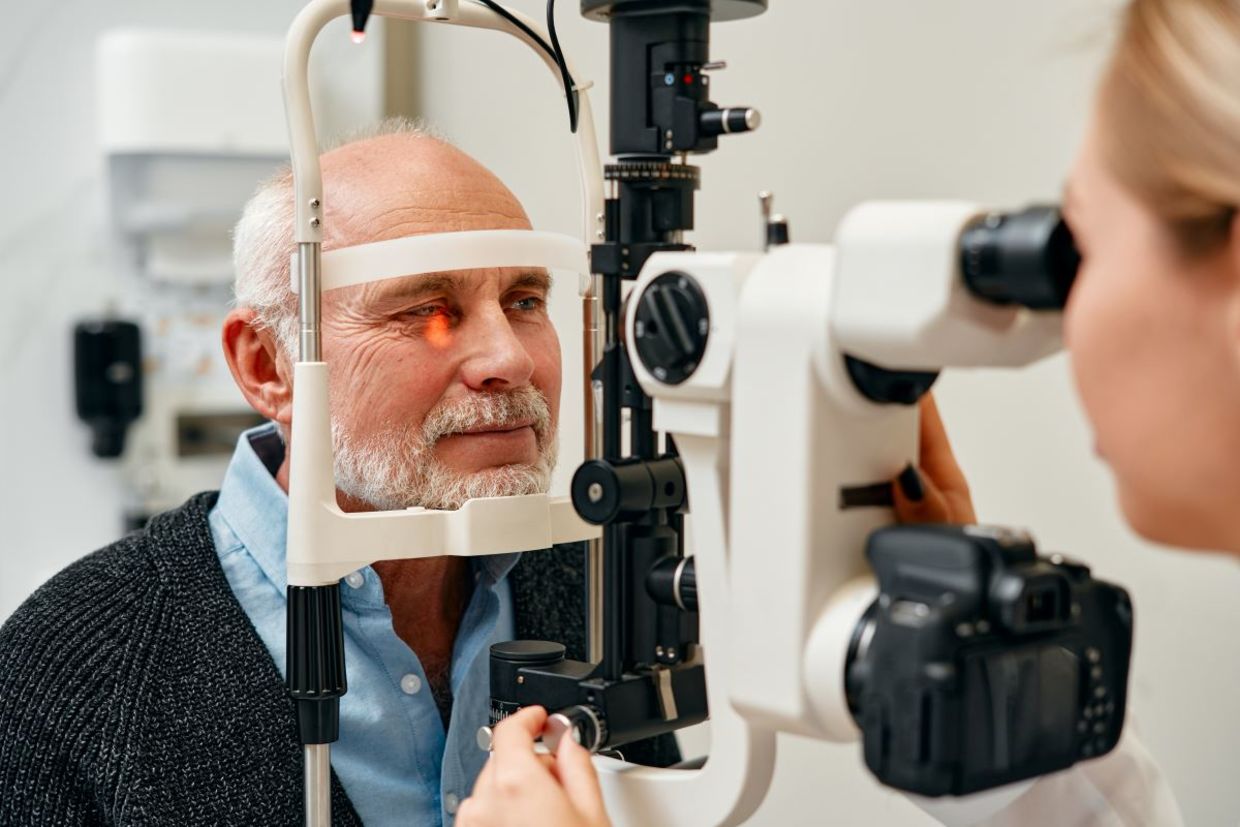
(ORION PRODUCTION / Shutterstock.com)
People's vision changes when they age and this is normal. Some of the changes are caused by genetics and overall health but there are ways that you can protect your eyesight as you get older.
Most people start to see vision changes around the time they turn 40, according to news from UCLA Health. You may have to hold reading material further away from your eyes or you could struggle to read in dim light. Other changes include taking longer to adjust to changing light levels like going inside from bright sunlight or that your eyes start to tear in windy or cold weather. All of these things are a normal part of aging.
Eye conditions due to ageing
While some eye conditions that require getting medical treatment or surgery can also occur as you age, this is not that common. If you regularly see an optometrist, eye conditions can be caught and treated early.
One of the most common eye disorders are cataracts, a condition that affects the clear lens of the eye, according to mindbodygreen. The lens is composed of proteins – called crystallins – that help light focus on the retina. When you age, oxidative stress that leads to the production of free radicals can damage these proteins and this leads to the formation of a cataract. The symptoms of cataracts include blurry vision as well as sensitivity to light and glare.
Glaucoma is a common form of blindness that affects the retina and the optic nerve. While a healthy optic nerve transmits signals from your eyes to your brain for interpretation, this neurodegenerative disease does not have any symptoms until the disease is advanced.
Another condition that affects the retina is macular degeneration. It affects a structure called the macula as well as the underlying tissue called the choroid. Oxidative stress and inflammation can cause a breakdown of these retinal cells. There are actually two types of macular degeneration and the wet form is the leading cause of vision loss in people over 60.
Another serious eye condition is Diabetic retinopathy that causes the retina to bleed and swell. Managing blood sugar levels can help to prevent these symptoms.
Ways to Protect Aging Eyes
While you can’t prevent age-related vision changes, stressed UCLA Health, there are things you can do to protect your eyes. Prevention is the best medicine when it comes to eye health.
Get regular checkups
The best way to protect your vision is to get regular checkups by an ophthalmologist or optometrist. In fact, The American Academy of Ophthalmology recommends having a baseline dilated exam at 40, yearly exams when you turn 50, and exams every two years after the age of 65. Make sure you review your prescription list with the doctor because some medications can affect vision.
Eat for your eyes
There are nutrients that support eye health and vision. Make sure that you eat foods that contain lutein and zeaxanthin; carotenoids that give plants their deep colors. These include dark leafy greens, carrots, and other brightly colored fruits and vegetables. Foods rich in vitamin C (citrus fruits and berries), vitamin E (avocado, olive oil, and almonds), zinc (eggs, dairy and meat), and Omerga-3 fatty acids from fatty fish, could support your eyes.
Manage blood pressure and diabetes
Untreated or uncontrolled diabetes and high blood pressure can cause eye issues. Start treating these chronic conditions with medications and lifestyle changes to help protect your eyes.
Wear Sunglasses
Protect your eyes from the damaging ultraviolet (UV) rays of the sun, according to WebMD. Too much exposure to UV rays can increase your chances of developing cataracts and macular degeneration. Your sunglasses should block 99 percent to 100 percent of UVA and UVB rays. Wearing wrap around sunglasses helps to protect your eyes from the side.
Quit Smoking
Most people are aware of the cancer risk associated with smoking but did you know that smoking increases your risk of cataracts, macular degeneration, and damage to your optic nerve. So if you smoke, talk to your physician about getting help to quit.
YOU MIGHT ALSO LIKE:
Best Eye Care Tips for Blue Light Safety
3D-Printed Corneas Could Soon Restore Vision for Millions
New Hope in Restoring Vision to People With Rare Inherited Blindness







